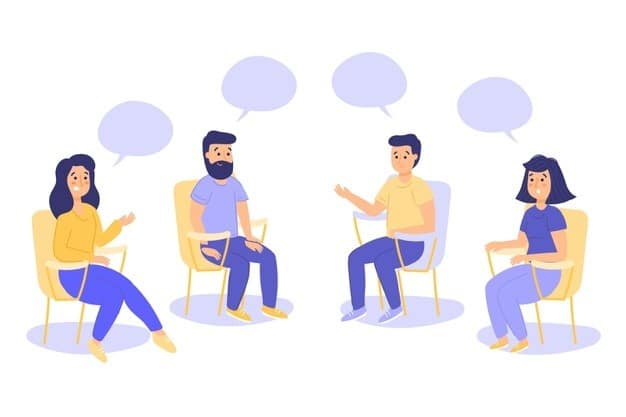Now that your CAT/MAT/XAT is done and dusted, the next step is to prepare for the Group Discussion (GD) and Personal Interviews(PI), since you should receive your interview letters soon. A GD gives even good orators the jitters.
What is a GD?
A Group discussion as the name clearly states is a discussion on a given topic within a group. GDs are conversational in nature as opposed to a debate where you need to prove your point. In GDs responding with logical, relevant points that add to the discussion or counter the popular arguments is as important as listening to other participants. A good GD is one where all participants in the group get a chance to put forth their ideas.
The most confident of the lot is usually super conscious not to over speak in the GD, and students who find public speaking challenging fear this will pull their scores down.
We have compiled some best practices to enable you to perform to the best of your ability.
Gather your points
Starting a group conversation does give one a head start, but do that, only when you have assembled and organized your thoughts. Start by speaking clearly to the entire group. Usually, there’s some time given to prepare. Jot down all significant points that come to you. Also, keep in mind any outlier statements you would like to add. There’s a good chance that someone else will speak on the points you have jotted, so you can fall back on the unique points to add value to the discussion. Finally, remember that people will pay attention to you if your arguments are relevant, clear, and concise.
Stay Grounded
When expressing a point, it’s important to have a decent, polite, and respectful tone. For this, one should focus on vocal modulation that is the speed and pitch of one’s voice. Make sure you are not too loud, nor too faint. Do not be in a hurry to get your points over with, neither should you wait until the end of time for a chance to speak. It’s also essential to understand the difference between aggressive and assertive behavior. It is not advisable to engage in one-on-one verbal arguments. However, one can gently disagree with others.
Observe, listen and speak
When the GD is already going on, pay attention to what others are saying and come up with new ideas on the spot to make your case. This will take a lot of work, but this can be mastered with a lot of reading and mock GDs with friends. If you do not get a chance to speak, ask the group for an opportunity to put forth your points. Also, invite others who haven’t had the chance to speak.
If you’re given an abstract topic, think outside the box and develop as many different interpretations as you can. Assessors enjoy hearing alternative points of view and new ways of thinking.
Do Not’s
Do not overstep your time
An average GD lasts about 15-20 minutes, thus speaking for 30-40 seconds 5-7 times should be ideal. Think about what you’re going to say before you say it. You’re being heard and assessed. Don’t make the same argument twice or be too long or irrelevant. Intervene respectfully if someone else is traveling down a path that isn’t relevant.
Avoid personal opinions
Personal viewpoints and personal experiences or your observations from them are usually not relevant in a GD. Stick to facts and remain objective throughout the discussion. Make it easier for others to contribute. Don’t just ramble on and on about your personal beliefs. Keep in mind that this is a group conversation. Allow other people to talk as well.
Group discussion is not just for cracking your entrance for MBA admission, but also for conquering your dream job. It helps you overcome your shyness and brings forth your point of view to the forefront. GD enables you to think in fresh and diverse ways. It is a great opportunity to assess and accept altering viewpoints. GD assists you in gaining a better grasp of your own strengths and weaknesses.
So go ahead and crack your GD.
Good luck!



 Download Brochure
Download Brochure Apply
Online
Apply
Online Placement Statistics
Placement Statistics Enquiry
Enquiry

